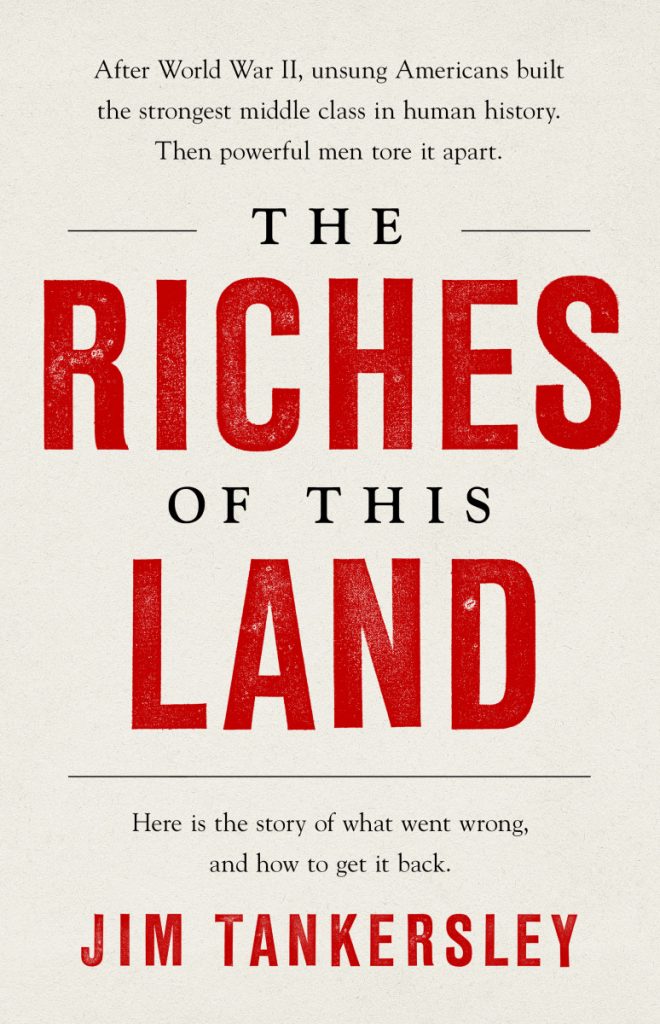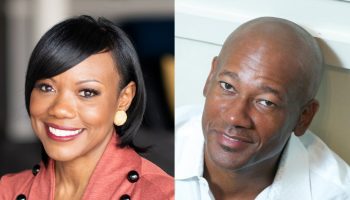SARAH VEST – STAFF WRITER

Currently, there is a cacophony of voices in the media giving different answers to the complicated question: “What is going on with the economy and the American middle class?”
Week Seven’s Chautauqua Literary and Scientific Circle author is Jim Tankersley, a White House correspondent for The New York Times focusing on economic policy. Previously, he was a policy and politics editor at Vox and an economics reporter for The Washington Post.
His book, The Riches of This Land: The Untold, True Story of America’s Middle Class, is about the people who built the American middle class who are not often talked about in conjunction with building up the economy. He focuses on people like women, men of color and immigrants, and the ways in which their success has lifted everyone across the economy up, including white men. He will be giving a lecture on his book at 3:30 p.m. EDT Thursday, Aug. 12 on the CHQ Assembly Video Platform.
Tankersley grew up in McMinnville, Oregon, and was standing in his parents’ kitchen at the time of his Daily interview, something he described as “fitting.” He said growing up in that community, which used to be a timber town, is what got him “fascinated by this question of who gets ahead of the economy, and who doesn’t.”
According to Tankersley, McMinnville was the kind of place where kids could graduate with a high school diploma and then get a good-paying job right away in the timber mills or cutting trees in the woods. As a result, the town had a lot of middle class people who did not attend college. Then, in the late ‘80s and early ‘90s, when Tankersley was growing up, the timber industry cratered when jobs started being outsourced overseas or became automated.
“I just remember spending a lot of time thinking about this question of, ‘What’s going to happen to these guys that I went to high school with, who were really good with their hands, who could fix an engine?’ ” Tankersley said. “(They) would have been middle class, blue-collar workers in a different economy, but were being totally left behind by the economic changes of the ‘80s and the ‘90s and then, particularly the early 2000s.”
Over time, as he worked as a reporter, Tankersley began to realize that the narrative he first recognized in his high school classmates was one that spanned the entirety of the economy, and that it affected many people before it began to affect white kids in rural Oregon.
“It was affecting huge swaths of people, who a lot of folks weren’t even thinking, or talking or writing, about as being victims of the pretty lame economy of the early 2000s,” Tankersley said. “So I got really interested in writing their stories and trying to build a theory of what went wrong and how do we get it back?”

During his lecture, Tankersley will focus on what is happening currently in the wake of the COVID-19 recession and just how brutal the pandemic was for the people the economy depends on most. He points to how when people think of American capitalism working well, what comes to mind is the prosperity boom of the post-World War II era.
Tankersley thinks that it is possible to repeat that boom, and we are seeing its beginning right now with how quickly the economy is growing this year.
It is possible for everyone to benefit — not just a few rich people at the top or stockholders — in a way that is tangible, he said. For example, people would be able to buy, be able to save to send their children to college and craft a stable middle class life that is associated with the American dream.
“So the bad news about the pandemic recession is it was like a heat-seeking missile to the people we need most to build that kind of economy,” Tankersley said. “It disproportionately hurt — both in terms of health outcomes and in terms of economic outcomes — women, and in particular women of color, who are this bellwether (for the economy).”
Despite his book’s focus on economics, Tankersley does not rely on charts and numbers in order to convey his message. Instead, he chose to tell stories about people. He feels that doing so helps to drive home what might be seen as a complicated topic in a way that is easy to understand and relate to.
“At the heart of great journalism is human storytelling,” Tankersley said. “That’s true whether you’re writing about wars or city councils or just the people in your neighborhood, but it’s particularly true about economic policy. If you’re trying to push back against decades or centuries of a narrative that’s wrong, the sort of things people learn are incomplete and don’t show them the full story of how our country works. I think you need to tell human stories, and it gets easier to persuade by giving people characters they can relate to than by just shouting at them.”
Tankersley said when he talks about his book, he consistently has to push back against the dangerous narrative that has been pushed by white men in power that one group of people getting ahead comes at the expense of other groups. This same narrative was pushed when women first entered the labor force, again during large waves of immigration, and again during the civil rights movement. According to Tankersley, the idea that white working-class men have something to fear from the empowerment of Black women is not true. He said the insight that his research has given him is that our economy is not zero-sum.
“The best way to generate an economy that lifts wages for everyone and creates better jobs, is just to have very fast economic growth with low unemployment, and the best way to get there is to have a lot of people working and doing what they’re best at — high productivity work,” Tankersley said. “The more skilled every worker is in the economy and the better fit their job is for them, the more productive we’re going to be.”
His book was published in 2020, and the themes in it that he touched on have continued to evolve since its release. As a result, for his lecture, he wants to extend the book forward into the current moment. He said America is in a pivotal moment for race relations; in some ways this moment has been productive, but has also generated some damaging backlash that threatens the progress of those who have been striving for civil rights for generations — and for the people who are scared that if the truth about those struggles comes out, it will make everything worse for the country as a whole.
This struggle, according to Tankersley, is related to how successful the American economy is going to be and how crucial it is to make the correct changes. There are people who profit from stoking division that comes from something like a racial reckoning, but there are economic incentives to coming together and hashing out the messiness into something that benefits everyone.
“We really could have this phenomenal economy again, and we could do it in a way that is really great for everybody,” Tankersley said. “It sounds very idealistic to say that, but I have a lot of numbers to back me up.”




